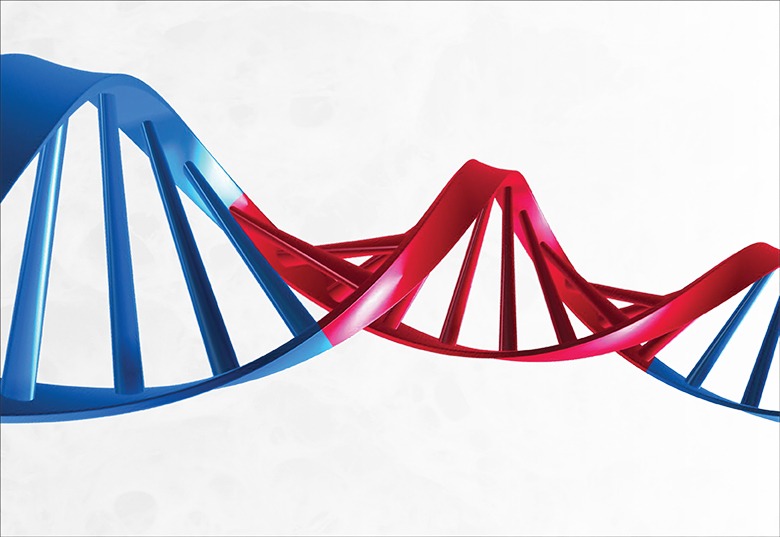One of the most powerful assets to your health care is already within you. Your DNA is a set of instructions, which influences many facets of your health. By diving further into what makes each person unique, we aim to help you make more precise health care decisions.
“From person to person, there are a number of different variations,” said Jason Flanagan, a certified genetic counselor at Sanford Health. “Alone, many of these variations have small impacts, but all of these small variations working together are what really contributes to making an individual genetically distinct.”
Every one of the billions of cells in your body has its own complete set of instructions. This is your genome, and it’s made of DNA, which is comprised of four repeating bases represented by the letters A, C, G and T. Every living thing has a unique genome. The human genome has 3.2 billion base pairs of DNA. It is so complex that if you recited one letter per second, 24 hours a day, it would take you 100 years to say them all.
With such a large amount of complicated data, it is natural that we have variations in our genetic code. These variations are known as single nucleotide polymorphisms or SNPs (pronounced snips). These small differences in the genetic code are inherited and occur commonly.
Interest in this type of genetic exploration has seen a significant uptick in public interest over the last few years. People are excited to learn more about the science behind their traits. But the medical community knows that the potential goes far beyond the color of your eyes.
“There are a lot of fun sites out there that breakdown your ancestral make-up but your genes can be used for so much more,” Flanagan said. “In the medical realm, we have the potential to examine your risk factors for certain diseases like heart disease and diabetes. We can also use it to determine what medicines will work best with your metabolism.”
And while this information is significant and can be very meaningful for patients, it also is complex and can be difficult for the lay person to understand.
“Studies show that we don’t often use genetic test results to change our health care decisions,” Flanagan said. “Some people are told they need to avoid this or do this more, and unless they have an experienced advocate and partner beside them explaining to them why and guiding them through the process, typically nothing will change. It takes a human being to translate personalized medicine to patient-centered medicine.”
Flanagan adds that while genetics play a larger role in medicine than ever before, nothing can compare to your family history.
“Having that detailed family history gives us that extra edge to having a more thorough idea of why you may be at risk,” he said. “You can’t base reality on just one test. We have to look at the whole picture. And with genetic counselors being integrated into the care model at Sanford Health, we are right there at the bedside, able to add that extra layer of knowledge for our patients.”
…
Posted In Genetics, Health Information
